
The State Comptroller of Israel inspects, reviews, and audits the policies and operations of the government of the State of Israel. The position is independent of the executive branch and answers to the Knesset alone.

A nationwide judicial system in Iran was first implemented and established by Abdolhossein Teymourtash under Reza Shah, with further changes during the second Pahlavi era.

The Supreme People's Procuratorate is the highest national agency responsible for legal prosecution and investigation in the People's Republic of China. Conceived initially in 1949 as the Supreme People's Prosecutor's Office, the agency was renamed the Supreme People's Procuratorate in 1954. The Procuratorate was abolished during the Cultural Revolution, before being re-instated in 1978. Between the 1990s to 2010s, the agency experienced a host of reforms pertaining to its selection of personnel, internal organization and role in the management of corruption.
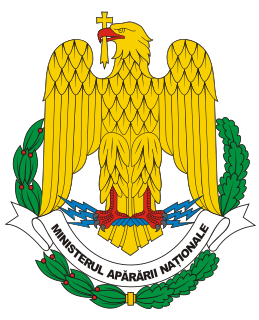
The Ministry of National Defence is one of the eighteen ministries of the Government of Romania.

The Supreme Audit Court of Iran (SAC) is a government agency of the Islamic Republic of Iran. Located in Tehran, it is supervised by the Iranian Parliament and dates back to 1906.

Human Rights in Andorra are guaranteed under the Andorran constitution. The State Department considers Andorra to have few human rights concerns.

The International Organization of Supreme Audit Institutions (INTOSAI) is an intergovernmental organization whose members are supreme audit institutions. Nearly every supreme audit institution in the world is a member of INTOSAI. Depending on the type of system used in their home country, the members of INTOSAI may be variously titled the Chief Financial Controller, the Office of the Comptroller General, the Office of the Auditor General, the Court of Accounts, or the Board of Audit.

An ombudsman, ombudsperson, ombud, ombuds, or public advocate is an official who is usually appointed by the government or by parliament but with a significant degree of independence. In some countries, an inspector general, citizen advocate or other official may have duties similar to those of a national ombudsman and may also be appointed by a legislature. Below the national level, an ombudsman may be appointed by a state, local, or municipal government. Unofficial ombudsmen may be appointed by, or even work for, a corporation such as a utility supplier, newspaper, NGO, or professional regulatory body.
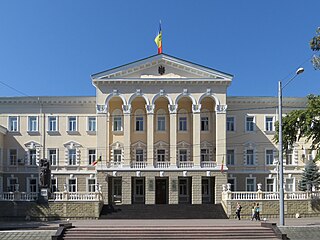
The Ministry of Internal Affairs of Moldova is one of the thirteen ministries of the Government of Moldova. It is the main executive body responsible for the Trupele de Carabinieri.
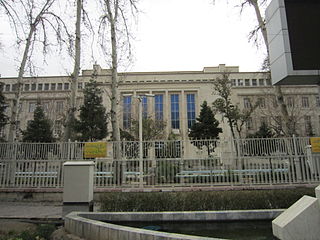
The Ministry of Economic Affairs and Finance's functions are:
A supreme audit institution is an independent national-level institution which conducts audits of government activities. Most supreme audit institutions are established in their country's constitution, and their mandate is further refined in national legislation. Supreme audit institutions play an important role in providing oversight and accountability in a country by monitoring the use of public funds and reviewing the quality and accuracy of government financial reporting. They also contribute to anti-corruption efforts. Depending on the country, a supreme audit institution may be called a court of audit, auditor-general or the board of audit. Nearly every supreme audit institution in the world is a member of the International Organization of Supreme Audit Institutions, which works to establish and disseminate international standards and good practices.
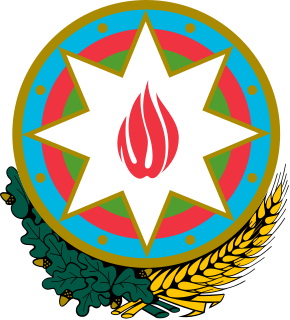
The Ministry of Justice of Azerbaijan is a governmental agency within the Cabinet of Azerbaijan in charge of regulation of the justice system, overseeing the public prosecutor, maintaining the legal system and public order and instituting law reforms.

While hard data on corruption is difficult to collect, corruption in Indonesia is clearly seen through public opinion, collated through surveys as well as observation of how each system runs.
The Office of the Prosecutor General of the Republic of Moldova is a government institution in Moldova, that works within the judicial power. It carries out and promotes observance of the rule of law, justice, protection of the rights and legitimate interests of the individual and society in criminal and other legal proceedings.
The Ministry of Internal Affairs of Tuva is the main policing and law enforcement body in the Republic of Tuva, a region of Eastern Russia. The current Interior Minister is Police Colonel Yury Polyakov, who assumed office in September 2019. It celebrates its professional holiday on 17 March.
The Ministry of Justice of the Republic of Uzbekistan,, is the central government body charged consistent implementation of a single state policy in the sphere of lawmaking and law enforcement practice in Uzbekistan.

This is a list of government and municipal institutions of Latvia and their subordinated institutions with executive powers:

Corruption in Guinea-Bissau is among the highest levels in the world. In Transparency International's Corruption Perceptions Index for 2014, it was ranked 161st out of 175 countries. The previous year, it was at 163rd out of 177 countries. This marked a decline from its 2012 ranking, 150th out of 174 countries. In 2013, Guinea-Bissau scored below the averages for both Africa and West Africa on the Mo Ibrahim Foundation’s Index of African Governance.
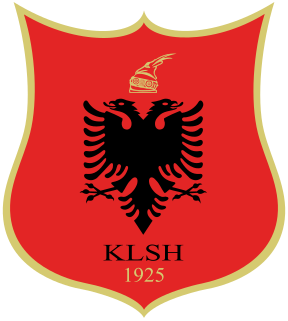
The State Supreme Audit is the supreme audit institution of the Republic of Albania, and as such is the highest institution of economic and financial control in the country. As an independent governing body it is subordinated only to the law and the constitution. Its mission is to contribute towards the good management of public finances, by conducting quality audits, reporting on the regularity and the effectiveness of the use of all state financial resources for the benefit of the state and its citizens.
The Chamber of Accounts of the Republic of Azerbaijan is a supreme audit institution, the highest financial control authority of the Republic of Azerbaijan.















